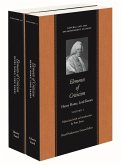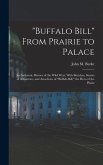In her novel, La Makan LKi Fi Bayt Abi (2007), Assia Djebar returns to her autobiography and her memories that are connected to the memory of her people in an interesting style. She dives into the soul of her heroine in order to reveal her real hidden contents and motives behind her behavior. The language that she uses serves as a tool of the liberation of the woman and her society. Through her revolutionary literature, Assia Djebar aims to raise important subjects regarding the issue of 'writing and identity' and to denounce and deconstruct the pillars of the discourses that establish the colonialist ideological institution and the question of fossilization within the crucible of traditions. Though she chose the pen to be her weapon that reflects the feminist pain on paper, her writings are characterized by a female sense, and she was known of her resistance to the patriarchal authority and colonialism. Assia Djebar believes that the woman should give up the role of the silent witness. She is not satisfied with anything except the formula of justice and redistribution of the roles in which the woman has a share.
Bitte wählen Sie Ihr Anliegen aus.
Rechnungen
Retourenschein anfordern
Bestellstatus
Storno








